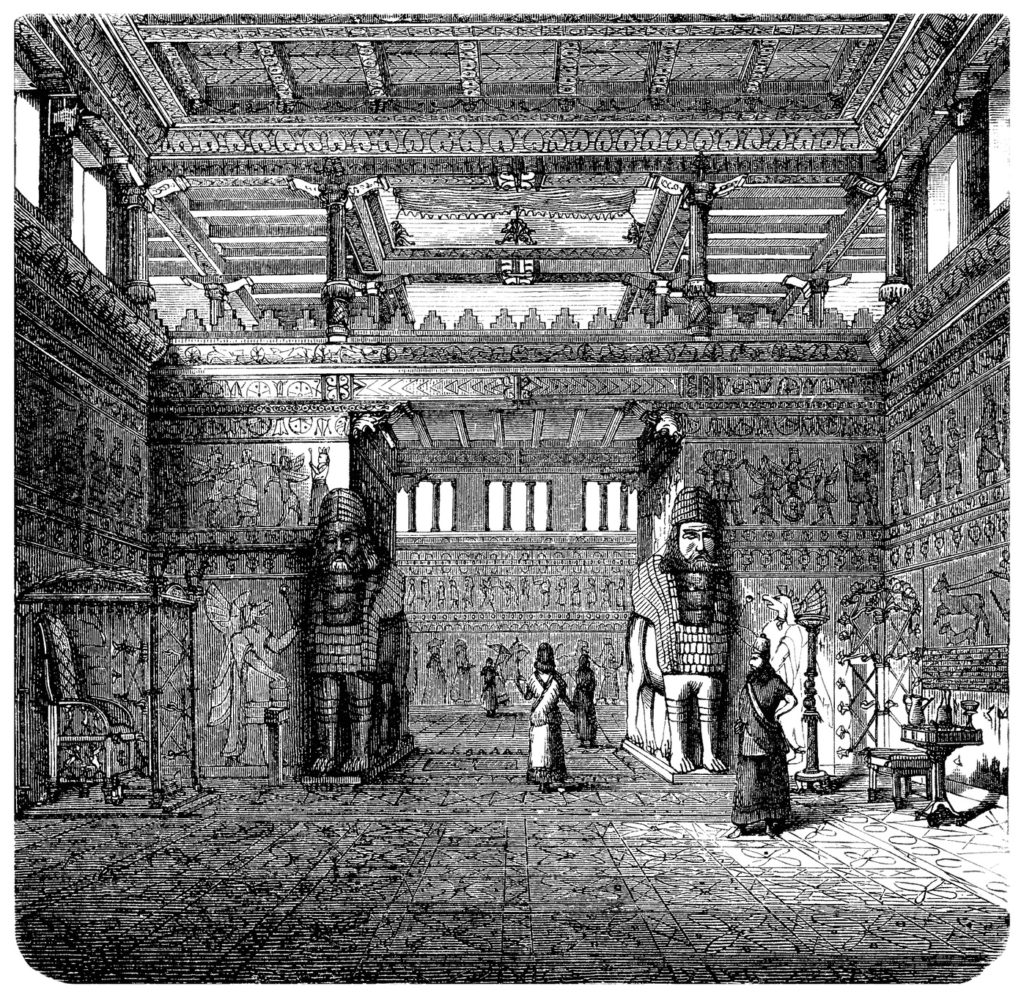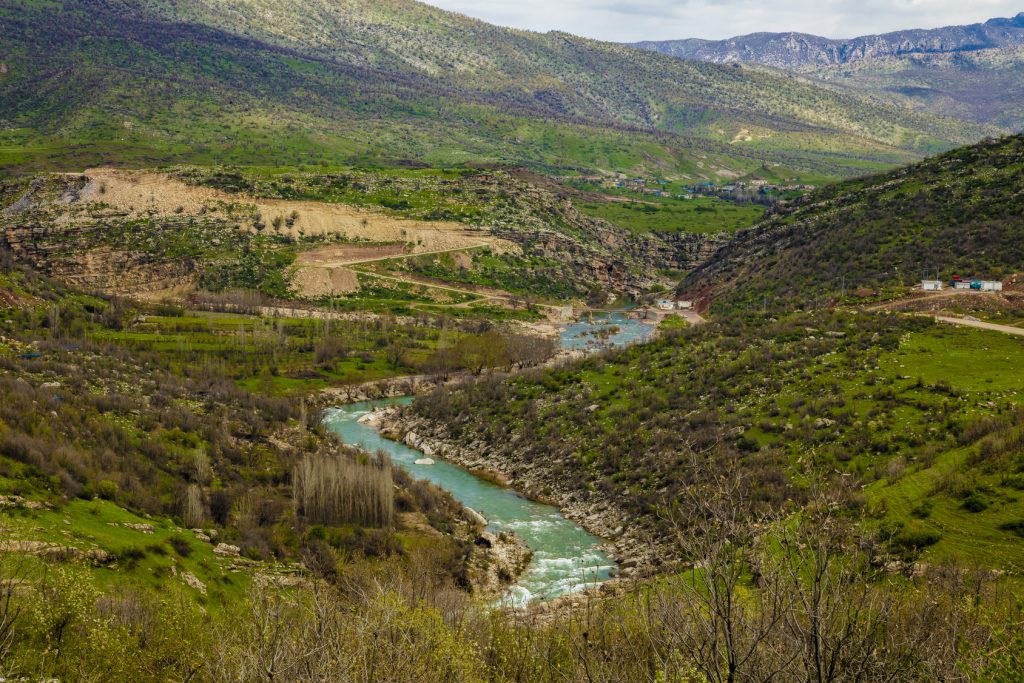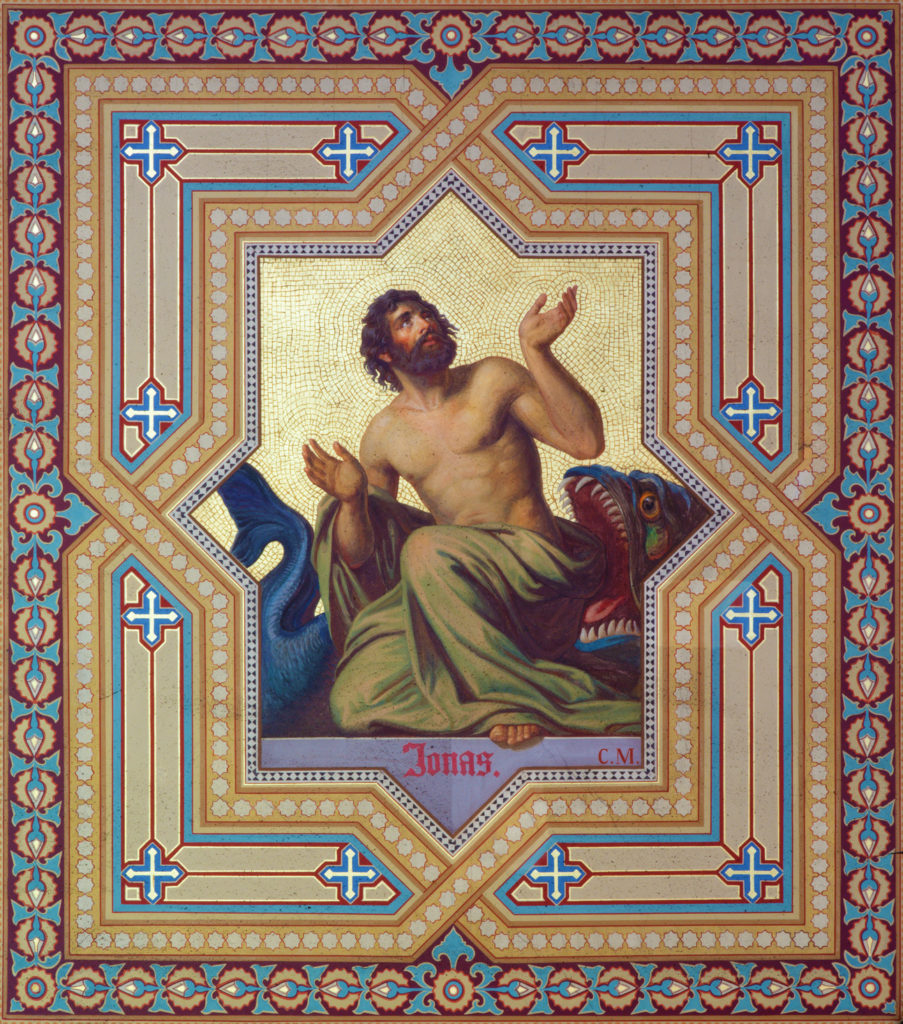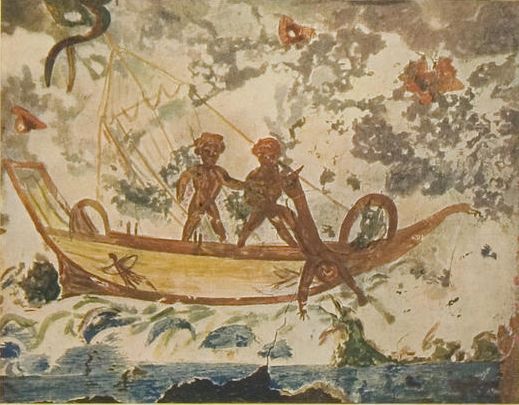
370 BC to 350 BC, Psalm 29: Jonah.
This site was first built in French (see www.147thgeneration.net). The English translation was mainly done using « google translation ». We have tried to correct the result of this translation to avoid interpretation errors. However, it is likely that there are unsatisfactory translations, do not hesitate to communicate them to us for correction.
(for that click on this paragraph)
Summary
This generation is from the years 370 BC to 350 BC
According to our count, this generation is the 29th generation associated with Psalm 29. It is in this Psalm 29 that we therefore find an illustration of the facts of this generation.
After many vicissitudes since the Babylonian exile, the people of Israel are finally reunited on their land in full sovereignty with the restored Temple. A clean Temple with again priests to serve, a people who found themselves forgetting past misbehavior and separating from other peoples to avoid a new relapse.
Tobit’s book is not part of the canon of the Hebrew Bible but is integrated with the Christian Bible. In Tobit’s book, we find a trace of the exiled tribes of Israel, especially representatives of the tribe of Naphtali who find themselves exiled in the city of Nineveh.
Jonah’s story presumably takes place in this generation. Jonah must announce the impending destruction of Nineveh. After refusing his mission, Jonas resolves to it. The people of Nineveh will choose to return to good, which brings the Lord’s mercy.
Talk
The restored Temple
After many vicissitudes since the Babylonian exile, the people of Israel are finally reunited on their land in full sovereignty with the restored Temple. A clean Temple with again priests to serve, a people who found themselves forgetting past misbehavior and separating from other peoples to avoid a new relapse.
This apparent renewal justifies the beginning of the psalm:

- A song of David. Prepare for the Lord, [you] sons of the mighty; prepare for the Lord glory and might.
- Prepare for the Lord the glory due His name; prostrate yourselves to the Lord in the place beautified with sanctity.
We could comment on the rest of the psalm in the same spirit, that is to say, praises to God over the recovered sovereignty, but we are in the night of Israel and not a generation can find complete tranquility.
Since the exile of the ten tribes of Israel by Sennacherib, the Jewish people has two components, the part of the people settled on their land and the one living in exile. For the first, we will see that the task is not easy and that it will suffer various hazards of hope and disillusionment. For the second, the one that is today called the Diaspora, despite the vicissitudes of exile, will ensure the survival of the people of Israel through time.
It is from the Diaspora that the people of Israel were reborn on their land today.
During this generation, the Jewish people live with a certain serenity in order to rebuild themselves on their land. This is very useful because until then it had been confronted with the peoples of the East, it will be soon to the peoples of the West.
Philip of Macedonia
More than a century ago, the Battle of Marathon (490 BC) did not allow the Persians to take over the Greeks.
It is therefore another sovereign who then attacks the Greek power: Philip of Macedonia. These events have no impact on the current generation. The respite, however, will be short-lived, for soon Alexander the Great, son of Philip, will make his name known in the East.
Tobit’s book
In Tobit’s book, we find a trace of the exiled tribes of Israel, especially representatives of the tribe of Naphtali who find themselves exiled in the city of Nineveh.
Nineveh is roughly the current city of Mosul (although today the cities of Mosul and Nineveh exist separately in modern Iraq).
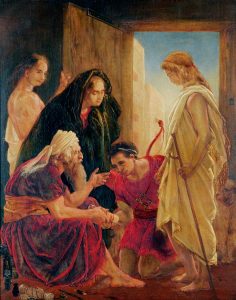
Tobit’s book is not part of the canon of the Hebrew Bible but is integrated with the Christian Bible. The fact that this book was not preserved in the Hebrew canon, despite its popularity, is probably due to the loss of original Hebrew or Aramaic (only the Greek version has survived) and not to its unsuitability.
Thus Tobit’s book begins by recalling the genealogy of this character. Tobit’s book then indicates Tobit’s peculiar piety despite his settlement in Nineveh. Flavius Josephus, also, when he relates the episode of Ezra, evokes the ten tribes of Israel in their exile.
Nineveh
The city of Nineveh gained real importance when Sennacherib made it its capital, it is legitimate to think that this city was then a privileged destination for the exiles of the tribes of Israel.
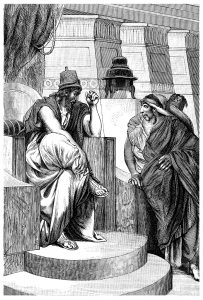
The successor of Sennacherib, Assurbanipal, tried to continue the expansion of his father and made it largely benefit Nineveh. The succession of Assurbanipal will not resist the external assaults, and Nineveh eventually fell into the hands of the Medes associated with neo-Babylonian Nabopolassar in 612 BC. It is Babylon that will become the new capital of the conquerors, from where will then leave the assault towards Jerusalem which will see the destruction of the Temple and the exile of the tribe of Judah.
Despite the conquest by the Medes, it is unlikely that the city of Nineveh lost its metropolis character in Assyria. Recall that this city still exists in today’s Iraq and brings together a population of more than seven hundred thousand inhabitants in front of the other metropolis Mosul of a larger but globally comparable population.
The favorable geographical location on the banks of the Tigris and close to rich land makes this place an ideal center for the construction of a city. Nineveh or its environs was therefore to be an important metropolis for the generation that interests us and was to bring together many Jews whether they came from the ten tribes of Israel exiled by Sennacherib or from the tribe of Judah exiled by Nebuchadnezzar.
In any case, this city, its proximity to the land of Israel, and its historic place in the exile of the Jews makes it the ideal symbol of the diaspora. We can therefore situate the story of Jonah to this generation or failing to locate the writing of the book of Jonah which has an important place in the Hebrew Bible.
Book of Jonah
In the book of Jonah, it is to the Jews of the nascent diaspora that God is interested while the Jews settled in the land of Israel live a time of rest limited in duration. For this reason, God speaks to a prophet living in the land of Israel:
- And [1] the word of the Lord came to Jonah son of Amittai, saying:
- Arise, go to Nineveh, the great city, and proclaim against it, for their evil has come before Me.
Despite the divine order, Jonah flees the land of Israel thus thinking to escape his mission. But the power of the Lord is not limited to the borders of the land of Israel, so Jonah is naturally pursued by God. :
- Now [2] the Lord cast a mighty wind into the sea, and there was a mighty tempest on the sea, and the ship threatened to be broken up.
This power of God over the elements is illustrated in the following verses of the psalm:

- The voice of the Lord is upon the waters; the God of glory thunders; the Lord is over the vast waters.
- The voice of the Lord is in strength; the voice of the Lord is in beauty.
- The voice of the Lord breaks the cedars, yea, the Lord breaks the cedars of Lebanon.
- He causes them to dance like a calf, Lebanon and Sirion like a young wild ox.
- The voice of the Lord cleaves with flames of fire.
The sailors came to understand that Jonah was the cause of their misfortune. On the advice of the latter, they throw it to the sea. This has the effect of immediately calm the storm and preserve their lives. The record indicates that the grateful sailors to the Lord converted to the faith of the Lord. As for Jonah, he was absorbed by a fish that ended up throwing him back on the bank once Jonah was finally resolved to accomplish his mission.
The Lord is Merciful
This mission was then reaffirmed to him by the Lord. Jonah was to announce the near destruction of Nineveh.
This illustrates the continuation of the Psalm which evokes the flood, comparable to the fate, as announced, of Nineveh:

- The voice of the Lord causes the desert to quake; …
- It is likely that it was in the wilderness that the word of the Lord was sent to Jonah a second time.
- … the Lord causes the desert of Kadesh to quake.
- The voice of the Lord will frighten the hinds and strip the forests, and in His Temple everyone speaks of His glory.
- The Lord sat [enthroned] at the flood; the Lord sat as King forever.
- The Lord shall grant strength to His people; the Lord shall bless His people with peace.
- The hind is the symbol of God’s forgiveness (see Psalm 22) to his people, the sign that even if the worst has been decided, a return to good can nullify the most fearful divine decrees.
Thus the flood is evoked, because for the people of Nineveh, it is a similar fate that awaits them. But the LORD is Merciful, and what he claims primarily is not the punishment of the faults of his people, but that he regains the energy necessary to return to the good (« The Lord shall grant strength to His people »), so that he may be spared punishment and may find peace and quiet with his God (« the Lord shall bless His people with peace »).
And it is this way that the people of Nineveh will follow, they will choose to return to good. As the Psalm announces, the return to good brings mercy from the Lord. The nature of the fault of the inhabitants of Nineveh has already been mentioned here: By imposing fasting on the cattle, the king indicates that the cattle are (despite themselves) in the reproach of God and that the cattle also risk perishing for this fault, which is probably the cohabitation between men or women and animals. Cohabitation forbidden by God.

[1] Yonah – Jonah – Chapter 1, verses 1 and 2
[2] Yonah – Jonah – Chapter 1, verse 4

